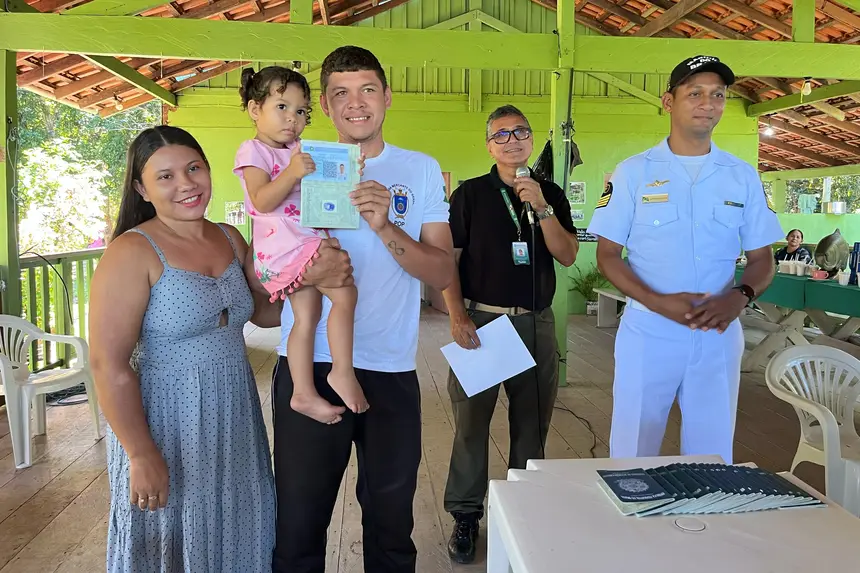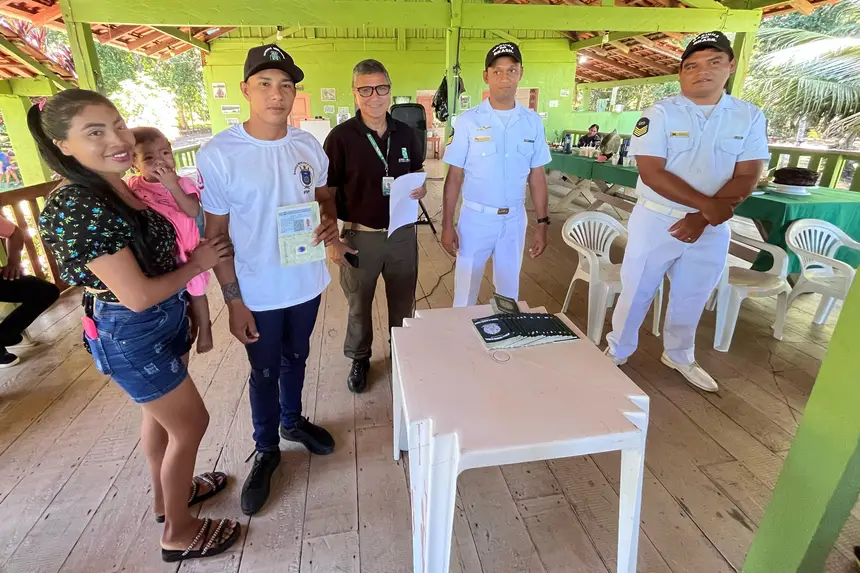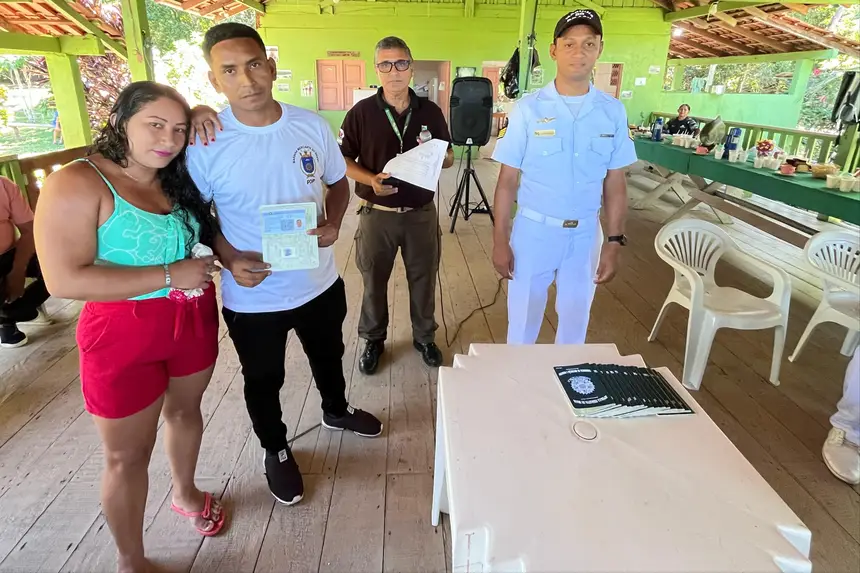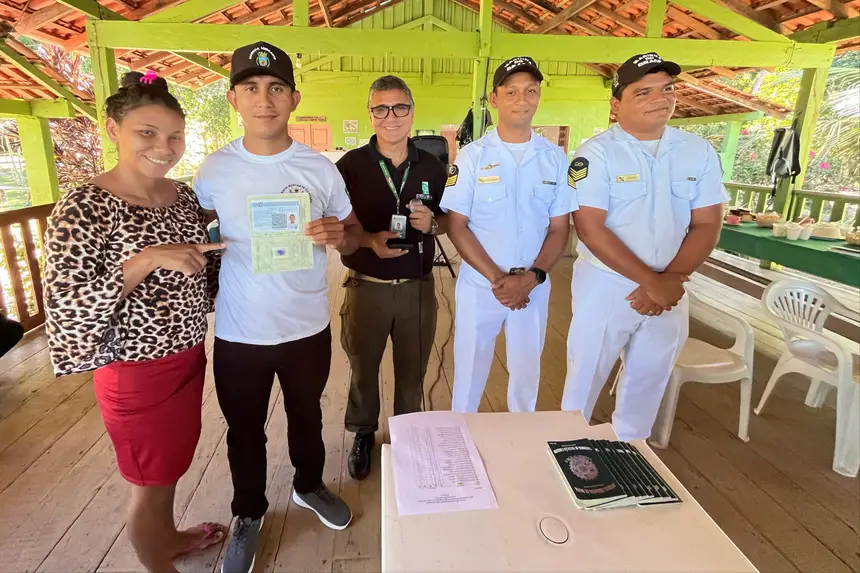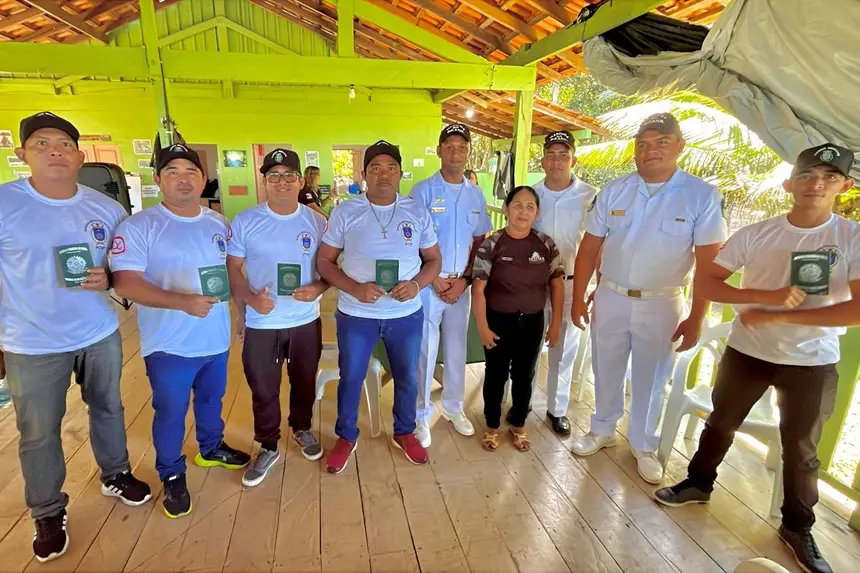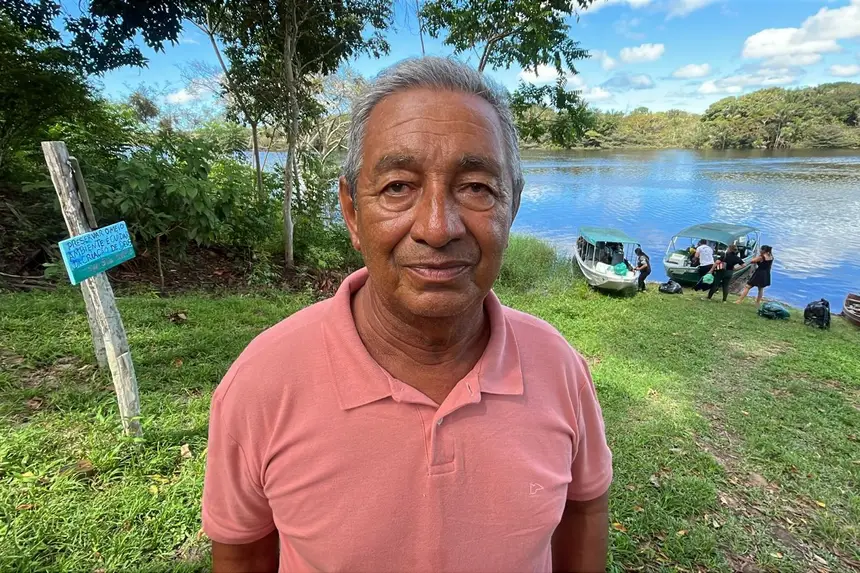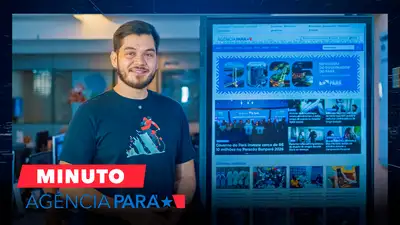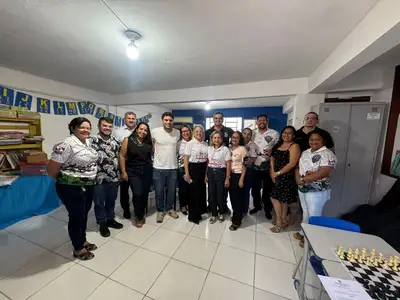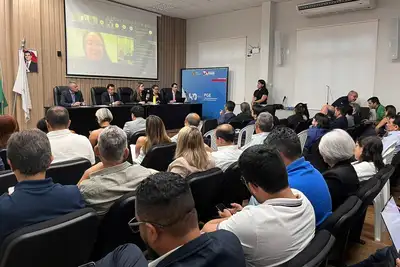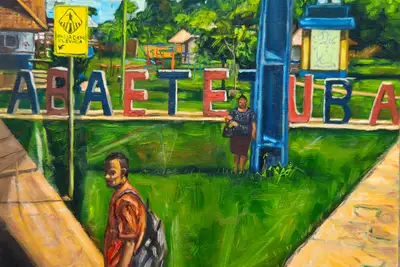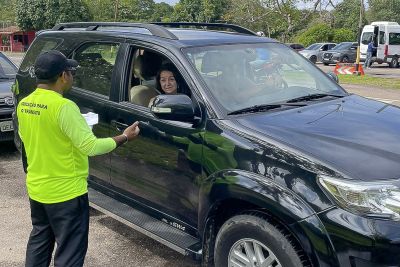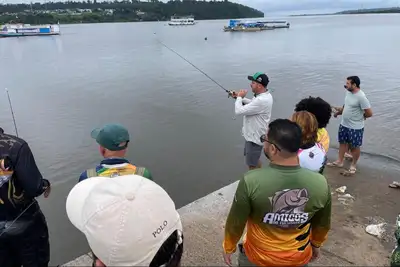Partnership ensures aquaviary course for community members of the State Forest of Faro
The initiative aimed to train and qualify community members for the operation of small vessels, especially focused on Community-Based Tourism and Sport Fishing Tourism.
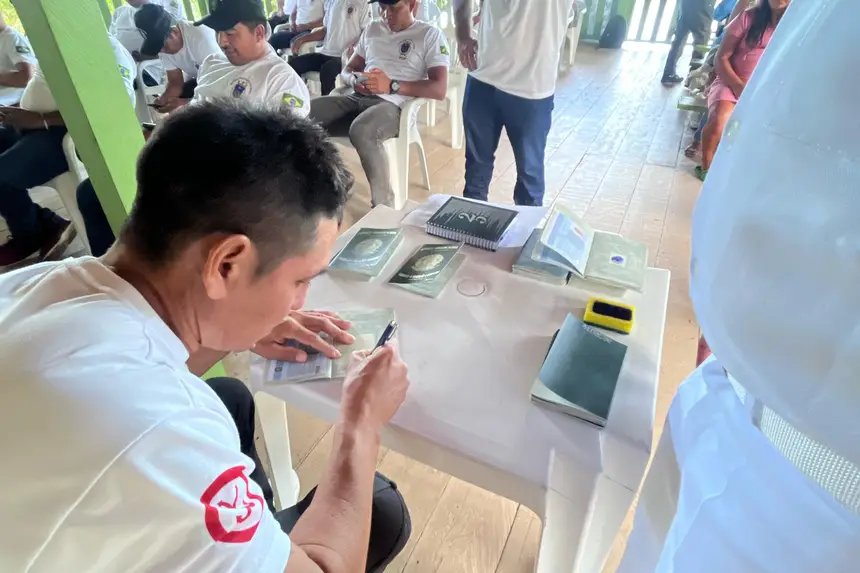
After days of learning, 25 students, mostly traditional residents of the State Forest (Flota) of Faro, in western Pará, completed the Aquaviary POP1 course. The initiative seeks to train and qualify community members for the operation of small vessels, especially focused on Community-Based Tourism and Sport Fishing Tourism.
The course, completed on Wednesday (23), was conducted through a partnership between the Institute for Forest Development and Biodiversity of Pará (Ideflor-Bio), the agency responsible for the Flota of Faro, the Port Authority of Santarém, the City Hall of Faro, and the Association of Residents and Users of the Forest of Faro (Amoflota).
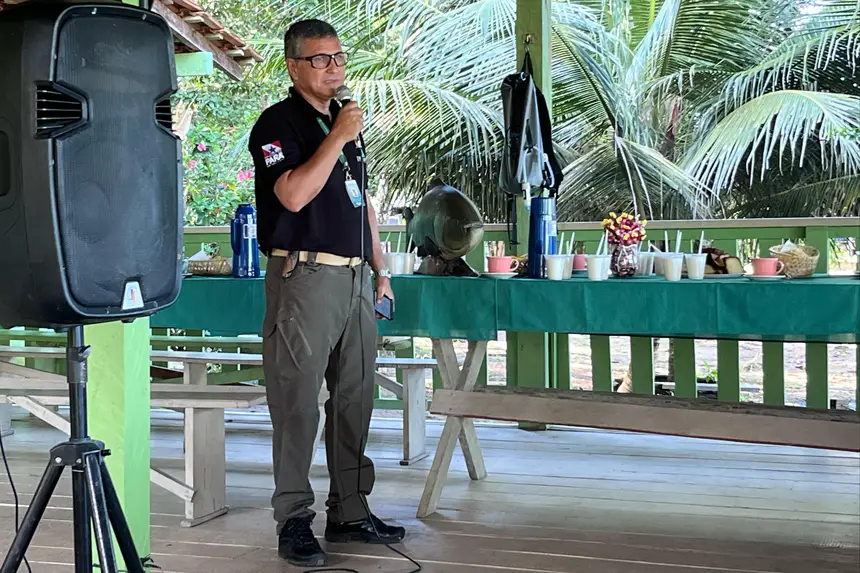
"This Aquaviary POP1 course reflects Ideflor-Bio's commitment to sustainable development and the inclusion of traditional communities. By qualifying these professionals, we are strengthening the local economy and promoting the preservation of our rivers and forests," highlighted the tourism planning and management technician at Ideflor-Bio, Deoclécio Júnior.
Contents - The training included modules on navigation, basic engine maintenance, safety techniques, and first aid, and provided participants with comprehensive knowledge about all aspects involving the operation of vessels in inland waters.
The theoretical classes covered everything from the principles of hydrostatics to reading nautical charts, including environmental regulations and specific legislation for aquaviary activities. The practical classes were held in the main channel of the river that runs through the Forest of Faro, allowing for the immediate application of anchoring, docking, and maneuvering concepts in real situations.
In addition to technical skills, the course also emphasized the importance of responsible and sustainable tourism. Instructors highlighted the fundamental role of vessel operators in preserving aquatic ecosystems and respecting riverside communities. This integrated approach aimed not only to train qualified professionals but also to create multipliers of good environmental practices.
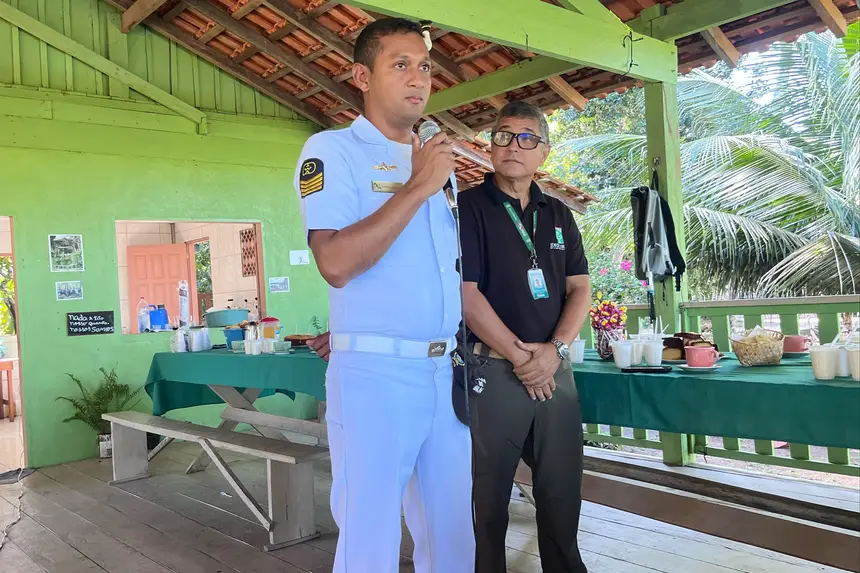
The director of Management and Monitoring of Conservation Units at Ideflor-Bio, Ellivelton Carvalho, stated that the partnership is a concrete example of how well-articulated public policies can transform the reality of traditional communities. "By providing quality training aligned with the region's vocations, we are not only professionalizing community-based tourism but also promoting citizenship, autonomy, and respect for riverside culture," he emphasized.
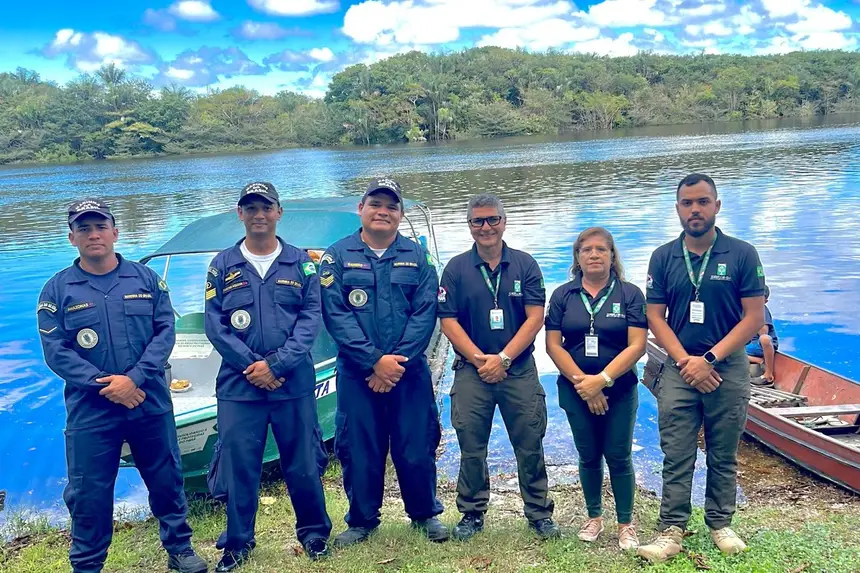
Preparation - With the certification, participants are now qualified to operate vessels up to 10 AB (about 8 meters in length), which represents an important advance in safety and the professionalization of tourism activities developed in local communities. This certification opens doors for graduates to work in both community-based tourism tours and sport fishing expeditions, two growing niches in the region.
The vice-mayor of Faro, João Espírito Santo (Baíca), highlighted the relevance of the initiative. “This course has enormous significance for our community. It is a recognition of our people, our culture, and our potential. We thank Ideflor-Bio for bringing this qualification, which will allow our residents to operate with more safety and dignity,” emphasized the municipal executive representative.
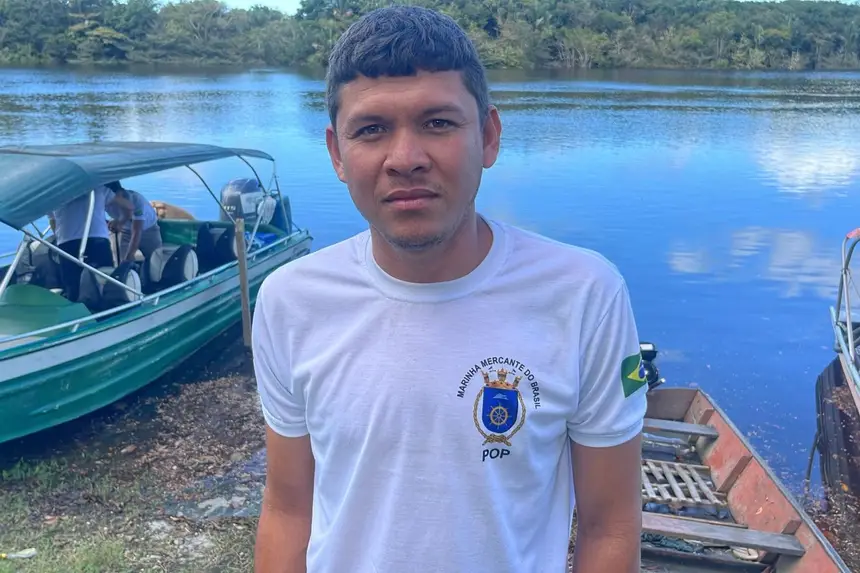
Satisfaction - The students also celebrated the achievement. Arlison Henrique, a resident of the community of Português, said that "this course came at a good time. We didn't have certification, and now we are legal. This brings more safety for both us and the tourists who visit our region," said the participant.
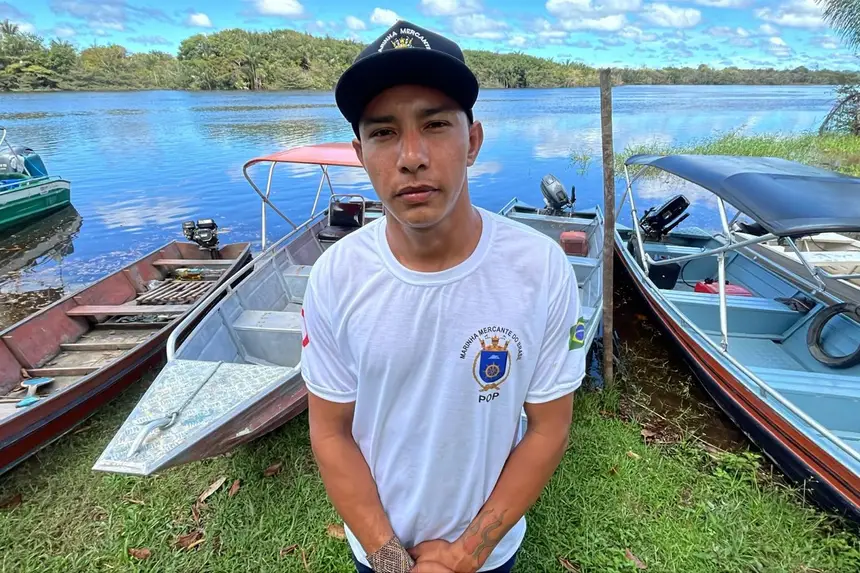
Darlison Bruno, from the community of Monte Sião, shared his experience with the training. "For eight years I worked without certification. With this opportunity that Ideflor-Bio brought, I can now perform my work with more peace of mind and within the law," he emphasized.
The training is another step in strengthening sustainable ecotourism in the Flota of Faro, generating income and autonomy for the traditional communities of the forest. With training like this, the future of local tourism looks promising, uniting socio-environmental responsibility and economic development in an integrated manner.
Text: Pablo Allves (Ascom/Ideflor-Bio)


